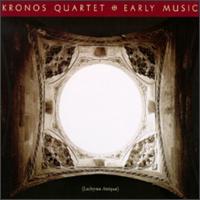
"[Roland Barthes] travelled to Japan in 1966 where he wrote Empire of Signs (published in 1970), a meditation on Japanese culture’s contentment in the absence of a search for a transcendental signified. He notes that in Japan there is no emphasis on a great focus point by which to judge all other standards, describing the centre of Tokyo, the Emperor’s Palace, as not a great overbearing entity, but a silent and non-descript presence, avoided and unconsidered. As such, Barthes reflects on the ability of signs in Japan to exist for their own merit, retaining only the significance naturally imbued by their signifiers."
-- wikipedia
"... conforming to Western philosophy, which regards each center as the seat of all truth, our town centers are always full. They are places where the values of civilization are collected and condensed : values of spirituality (with churches), power (with offices), money (with banks), goods (with department stores) and words (with the 'agora': cafes and walks). Going downtown means encountering social 'truth', taking part in the sublime richness of 'reality'. The city I'm referring to (Tokyo) presents this amazing paradox : it does have a center, but this center is empty. The whole city revolves around a place that is both forbidden and indifferent, an abode masked by vegetation, protected by moats, inhabited by an Emporer whom no one ever sees : literally, no one knows who does ever see him ... Its center is no more than an evaporated ideal whose existence is not meant to radiate any kind of power, but to offer its own empty center to all urban movement as a form of support, by forcing perpetual traffic detours. Thus, it appears as an image that unfurls again and again in endless circles, around an empty core ...
Barthes himself has often pointed out that while the center of a European city is historically linked with a market or cathedral where citizens converge, nothing so clear-cut ever occurs in a Japanese city. "Tokyo, thus, is an 'amoeba city' with its amorphous sprawl and the constant changes it undergoes, like the pulsating body of the organism. And as with an amoeba, Tokyo demonstrates a physical integrity and the capacity for regeneration when damaged." This is a fascinating idea that is clearly linked with that of the 'mollusc society' described by the anthropologist Chie Natane in reference to the 'decentralized' psychological behaviour of the Japanese as compared to the 'vertebrate' behaviour of westerners.

This city cannot be known except through some sort of ethnographic activity: you need to find your bearings . . . by walking its streets, by looking around you, through habit and experience: each discovery is both intense and fragile, it cannot be repeated, and only its trace can be left in our memory: in this sense, visiting a place for the first time is like starting to write about it: as the address has not been written down, it has to found its own writing”. "The murmuring mass of an unknown language constitutes a delicious protection, envelops the foreigner (provided the country is not hostile to him) in an auditory film which halts at his ears all the alienations of the mother tongue: the regional and social origins of whoever is speaking, his degree of culture, of intelligence, of taste, the image by which he constitutes himself as a person and which he asks you to recognize. Hence, in foreign countries, what a respite! Here I am protected against stupidity, vulgarity, vanity, worldliness, nationality, normality. The unknown language, of which I nonetheless grasp the respiration, the emotive aeration, in a word the pure significance, forms around me, as I move, a faint vertigo, sweeping me into its artificial emptiness, which is consummated only for me: I live in the interstice, delivered from any fulfilled meaning."
-- 'The Empire of Signs' Roland Barthes
"Barthes also seems to be in accord with the Kyoto school philosophy of Nishida Kitaro and his followers, who emphasize that Japanese culture is based on absolute nothingness (zettai mu) rather than being (yu), and on an intuitive grasp of the 'formless and voiceless' rather than concrete things. Although Barthes does not deal specifically with the topic of familism, he apparently feels that the base of the family system is a perpetually creative void. His understanding of the relation between palace and polity, emperor and commoner reflected in his interpretation of the Tokyo ideographic map as a prime example of decentric discourse makes an important though indirect statement on the family ...
It is also important to note ow Barthes asserts that a main feature of his semiotic postmodern discouse is its conjunction with his demythologized view of Zen enlightenment and creative expression. For Barthes, writing and images are not 'explanations' and 'illustrations' but floating signs, empty of center, bringing on 'the onset of a kind of visual uncertainty, analogous perhaps to that loss of meaning Zen calls a satori", which is expressed in a variety of artistic forms, including calligraphy, poetry, tea ceremony and swordsmanship. The implication is that Zen has anticipated and guided the way to the decentric postmodern perspective, and in that sense Barthes has discovered an Oriental essence in spite of disavowing just that effort"
-- 'Japan in traditional and postmodern perspectives' Charles Wei-hsün Fu












No comments:
Post a Comment